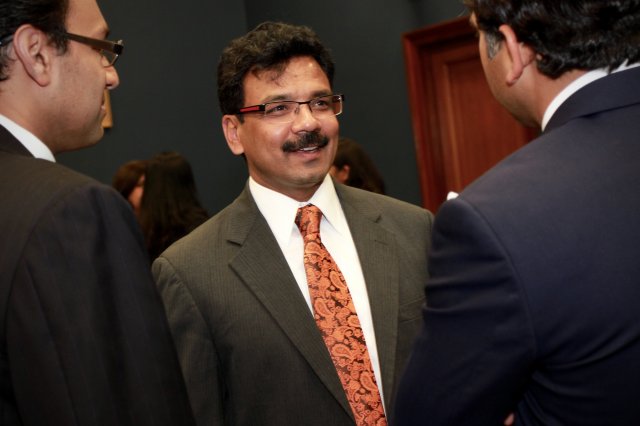
WASHINGTON (TIP): A bipartisan group of senators formally filed legislation early Wednesday, April 17 calling for border security as the cornerstone of immigration reform. The bill also would prevent undocumented immigrants from reaching full legal resident status until after the government takes steps to keep unauthorized workers from getting jobs in the United States, according to a summary released before the bill was filed. The measure drafted by the “Gang of Eight” senators says “high risk border sectors” — those with at least 30,000 illegal crossings a year — must be sealed off before most undocumented immigrants could start their journey to legal residency. It makes exceptions for law-abiding immigrants who arrived in the United States as children and completed high school. It also exempts some farm workers, according to the summary. Conservative senators have insisted on border security as a condition for the legislation. Some Democrats, whose party controls the chamber, have agreed.
Quota-based border security
The bipartisan bill lays down strict criteria for the creation of a secure border. It calls for $3 billion to beef up border security, which includes fortifying fences, staffing up patrols and acquiring surveillance technology from the Department of Defense — including drones and drone pilots, according to the summary. It also requires constant surveillance of high-risk border areas and demands that border officers turn back at least 90% of those who attempt illegal border crossings each year.
The path to legal residency? Border security
Only undocumented immigrants who arrived in the United States before December 31, 2011 would be eligible for legal residency, according to the bill summary. They also can’t have any felony convictions in U.S. or foreign courts. But smaller offenses can also block residency. The bill would block applicants with more than three misdemeanor convictions, including for offenses such as reckless driving, trespassing or vandalism. Voting illegally also triggers ineligibility and authorities can turn back applicants if they have certain infectious diseases or questionable “morality,” according to the summary.
Time and money
The bill would also require undocumented immigrants to pay a penalty of up to $500 for having come to the United States illegally and also pay any back taxes before receiving temporary approval to stay. But that approval — call registered provisional immigrant status — opens up most U.S. jobs and allows the applicant to travel outside the country and return legally. The status lasts for six years and can be extended for an additional $500 fee, if the applicant has not gotten into any trouble with the law. After 10 years as provisional residents, immigrants could become lawful permanent residents by following the same guidelines as immigrants who enter the country legally. That process includes a $1,000 fee.
Blue card for Agricultural workers
The proposal also calls for issuing agricultural workers a new type of legal status card: a blue card. Agricultural workers who are currently in the country illegally would be allowed to apply for the card if they have worked in the U.S. agriculture industry for at least 100 days in the two years prior to December 31, 2012. Applicants must also pay a $400 fee, show they have paid their taxes and have not committed a crime. The bill caps the blue cards at about 112,000 for the first five years. Blue card holders would be eligible for permanent legal residency in five years, half the time of other adult immigrants in the country illegally, according to the summary. The proposal would also set minimum wages across several categories of agricultural workers.
Members of the Republican-led House of Representatives are working on their own immigration overhaul plan, which also includes border security measures. Authors of the newly released Senate immigration bill touted the package Thursday, April 18, as a “bipartisan breakthrough” in advance of a critical hearing, as opponents began to organize against the bill — claiming it doesn’t do enough to enforce existing immigration law. Sen. Marco Rubio, R-Fla., who has put his conservative reputation on the line with his involvement in writing the bill, took to the floor late Thursday afternoon to defend it.
Though critics have homed in on the bill’s pathway to citizenship for illegal immigrants, Rubio said the package would also fix a “broken” legal immigration system so that foreign students trained in America would not be sent back home once they’ve learned their skills. “If there wasn’t a single illegal immigrant in the United States, we would still have to do immigration reform,” Rubio said. As for the path to citizenship, which would give up to 11 million illegal immigrants a shot at legal status, Rubio said “the alternative is to do nothing” — which he described as “amnesty.” Rubio and the seven other co-authors, who formally unveiled the legislation at a press conference Thursday, are hoping to avoid the fate of the 2007 immigration bill, which died amid heated criticism from both sides of the aisle.
Republicans have bluntly professed an interest in courting Hispanic voters, and some prominent members, including Rubio, have lent their name to the effort.





Be the first to comment